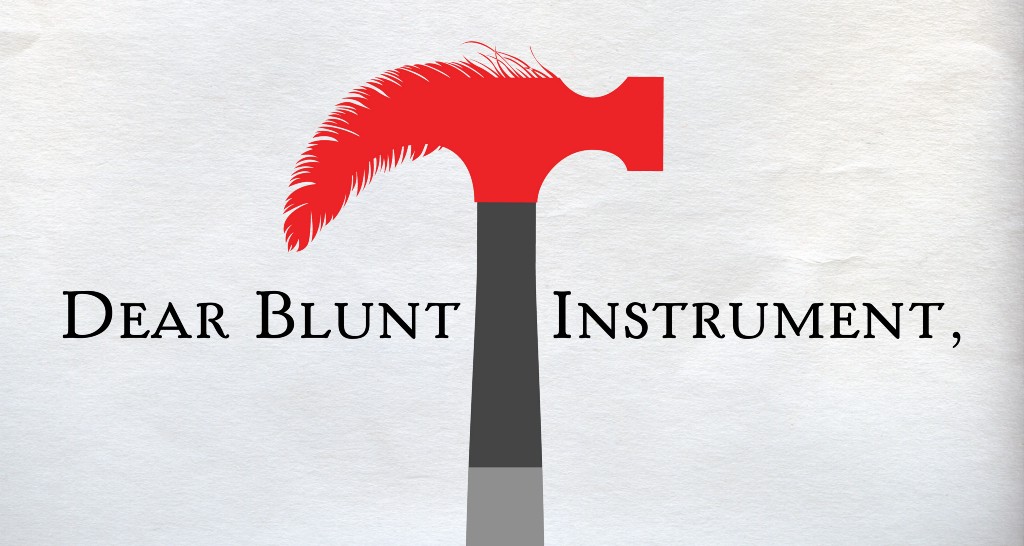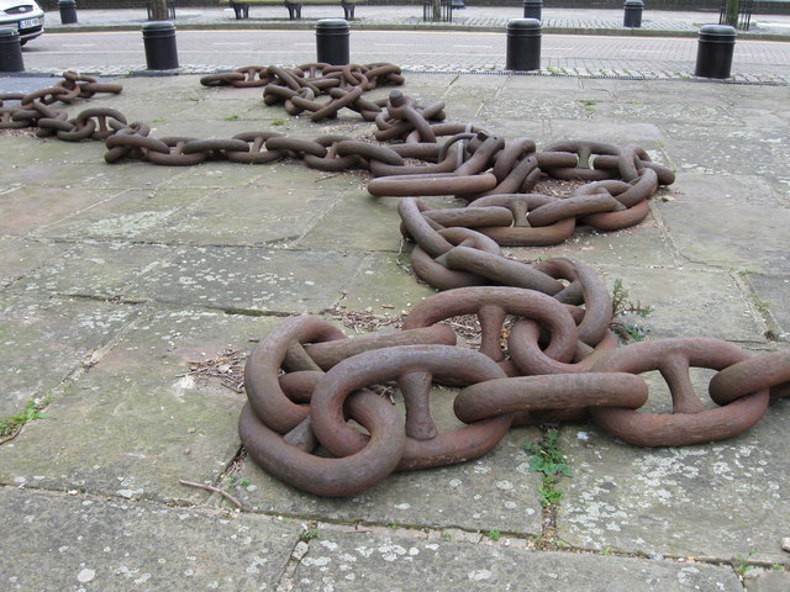interviews
How Do You Know If Your Writing Is Any Good?

The Blunt Instrument is a monthly advice column for writers. If you need tough advice for a writing problem, send your question to blunt@electricliterature.com.
Dear Blunt Instrument,
My questions for you are about nerve and grit. I write flash fiction, short stories, am working on a novel, and I’ve been sporadically writing blogs for fun for almost six years. I’m also aiming to write for online magazines. I have a fair amount of experience writing copy for companies, and I’m now in the early stages of setting up a freelance business.
I’d like to know how a writer trusts that their work is good, and has the grit to keep going with it?
I grew up in a place where people asked, “Who do you think you are?” of anybody doing something outside the norm, and in spite of moving on geographically, those words are often in my head on days of a confidence dip. I’d like to continue being constructively self-critical but be able to shake away this negative voice!
I completed an MA in creative writing three years ago where I got some good feedback. People have also said good things about my blog, I have happy copywriting customers, and sometimes I feel tuned into and confident about my writing. Recently however, I’ve decided to properly pursue becoming a paid freelance writer — rather than dabbling as a sideline alongside day jobs — and attempt publication of my creative writing. Logically, I know a lot of work, editing, and rejection will be part of this, which I am up for, but even so I think the idea of testing my writing via more “official” realms has spun me out and got me feeling all anxious.
Some side questions: Is submitting to competitions/magazines a good way to judge where you’re at? When writing fiction with the hope of publication, at what stage should you show your work to an agent?
If you could please offer some advice, that would be awesome!
Thanks very much,
Lisa.
@lisajderrick
Dear Lisa,
I’ll give you some practical advice in a minute, but first let’s establish something important: There is no such thing as “good.” There is no objectively good work and there are no objectively good writers.
I can name plenty of books that I think are genius but which are detested by great writers whose opinions I respect and vice versa- there are books I despise which are revered by writers I love. Writing also goes in and out of fashion; when I was a kid John Updike seemed to be universally accepted as a great writer, whereas these days I more often hear his name as an example of bad writing. The point is, a piece of writing has no inherent value in a vacuum. How “good” it is is decided by people at a point in time and space.
I don’t think this is uselessly abstract, I think this has real bearing on how you choose to think about your own writing and where you look for validation. Sitting around wondering if you’re “good” and expecting the world to answer is like asking how you know when your book is done — it’s not something the book or the world can tell you. It’s a decision you need to make.
There may be important and famous writers who went to the grave tortured and doubtful of their own talent. It’s possible that you can find great success as a writer without ever feeling like you “know” if you’re “good.” To me, that sounds like no way to live. So when I write, the standards I try to meet are my own: Do I want to read what I’m writing? It’s that simple. If I write a poem or an essay that I want to read and re-read after I’ve finished writing and editing it, then it’s good by my own lights.
If you don’t feel that way about your own writing, the challenge becomes: Write something that you would want to read. It may sound obvious, but I don’t think most writers hold themselves to these standards. Did you know that people are faster to recognize photos of themselves that have been photoshopped to make them look slightly more attractive? Self-assessments are often self-flattering. (It’s not easy, but I think working at being a better reader and editor of other people’s work makes you a better reader and editor of your own work too.)
Now for the more practical part. First, a reminder that freelance copywriting and fiction are totally different worlds. When you’re freelancing as a job, the standards you need to meet are the client’s. And typically, the client makes it pretty clear what they want, what the goals of the piece of writing are, and whether or not you’ve met those requirements. Getting creative work published is a very different game. As you say, you’re going to get rejected a lot. It’s very competitive and what “the client” wants is much less clear. Dealing with all that rejection and retaining your “grit” will come from, on the one hand, only submitting work that meets your own quality standards and, on the other, recognizing that rejection isn’t personal — more on that here.
So to answer your side questions, I’d say that no, submitting to contests and magazines is not a good way to “judge where you’re at.” The point of sending your work out is to get it published. Finding an editor who likes your work might give you a confidence boost, but it doesn’t “prove” that you’re “good,” since the process is both extremely selective and somewhat random. (You might be rejected from a number of small magazines only to finally publish the piece somewhere much bigger. On the other hand, work I hate gets published every day.) Send your work out when you’ve decided that it’s as good as you can make it. External validation should be a bonus — if you need it to believe that what you’re doing is worthwhile, you’re going to crumple with rejection.
As for the agent question: As a fiction writer, it’s unlikely that you’ll get an agent without a finished book unless you’re publishing stories in top-tier journals like the New Yorker and the Paris Review. (Nonfiction books are a different story.) If that’s not the case, have a strong polished draft of either a novel or a collection of stories in hand when you start sending out queries to agents. An agent may push you to make further revisions, but start with a book you’re confident in — that you would want to read.
The Blunt Instrument









